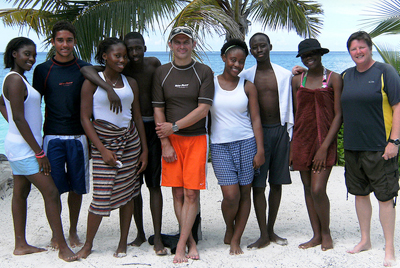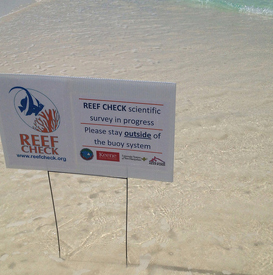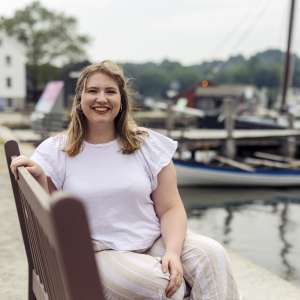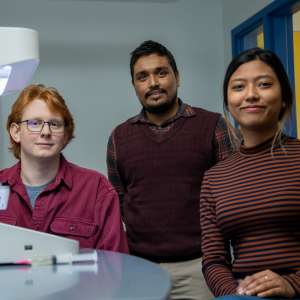Profs Cangialosi and Strong Use Sabbaticals to Save Coral Reefs

Despite the fact that the tourist industry markets the islands of the Caribbean for their abundance of natural beauty, emerald waters, and pristine beaches, there are problems in paradise—some fairly serious ones, in fact—including invasions of destructive plants and animals, stripped plant cover, soil erosion, and reef degradation. Biology professors Karen Cangialosi and Scott Strong have been working for healthier coral reefs for several years, and over the coming two semesters they’ll be taking back-to-back sabbaticals (Prof. Strong over Fall 2015, Prof. Cangialosi over Spring 2016) to have more time to devote to their conservation efforts. They have, or expect to receive, $20,400 to support their work.
In 2000, Dr. Cangialosi acquired a Whiting Foundation grant and spent a month on Providenciales (one of the Turks & Caicos islands), making connections, honing her SCUBA diving skills, and learning about local marine life, and exploring the diversity of marine habitats. In 2001, she developed her Tropical Marine Biology course that includes a week-long field trip to the Turks and Caicos Islands. In 2008, realizing that many local islanders were unaware of the dire state of the rich marine environment around them, she and Dr. Strong developed an education project with students at a local high school on Providenciales to help empower young people to become the stewards of the marine world that surrounds their home.
Most of the Turk islanders never learn to swim, snorkel, or really appreciate the ocean environment around them. Economic pressures encourage them to participate in the tourism industry that exploits this rich ecosystem. By combining their sabbatical time, Drs. Strong and Cangialosi will be able to expand their existing coral reef monitoring and local youth education program and strengthen the critical work of empowering local people to effectively steward the marine environment.

“The primary purpose of our ongoing project is to instill the awe and curiosity that comes with experiencing nature from first-hand observation,” Dr. Cangialosi explained. “On a small scale, we have engaged high school students living on Providenciales in snorkeling and observing marine life. Our experiences have taught us that just putting a mask and snorkel on a young person who has never seen a parrotfish or a sea anemone is an extraordinarily powerful transformative moment.” During the year that their combined sabbaticals will allow them to be on the islands, the professors hope to transform the young islanders’ initial awe into a more scientific understanding and appreciation of the islanders’ ocean world.
The professors plan to expand the project they’ve been developing since 2008 into a broadly integrative program that empowers youth through education, training, and experiences in coral reef ecology, scientific methods of conservation biology, environmental awareness, global communication, and leadership skills. Specifically, the professors’ goals are to
-
Refine our curriculum in coral reef ecology and conservation.
-
Recruit and hire a team of volunteers and paid staff to be instructors for the program.
-
Incorporate leadership skills that help students recognize their value to their own community.
-
Help students develop a shared vision of the future.
-
Establish avenues for students to share what they have learned with others.
Not only is this program a benefit to the coral reef system and the young islanders of the Turks & Caicos, it also supplies important data to the Reefcheck International database each year and provides a valuable research opportunity for Keene State, and the students who travel to the islands for the annual spring marine biology trip. For example, one of those students, Mike Desjardins ’14, a geography major who completed the Tropical Marine Biology course in 2012, acquired an undergraduate research grant to use a Geographic Information System (GIS) to chart change in the coral reef over time.





